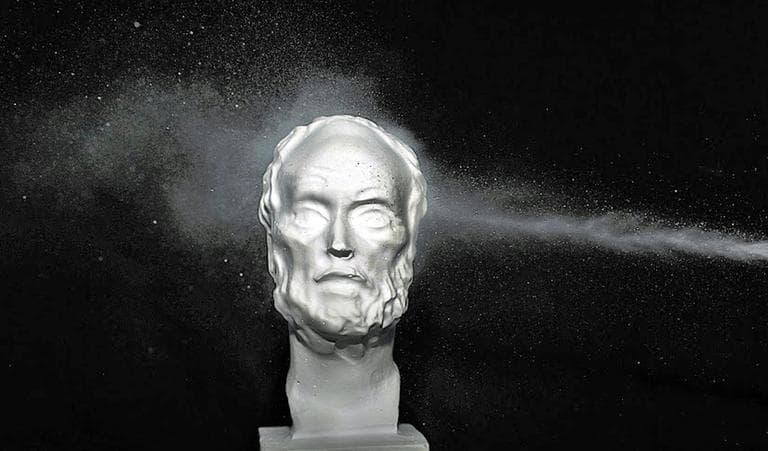Advertisement
How Philosopher Daniel Dennett Thinks
Resume
On the door of his office at Tufts University, philosophy professor Daniel Dennett displays a banner quoting the late American writer Gore Vidal. It reads, "It is not enough to succeed; others must fail."
This one sentence offers a window into what motivated Dennett to pursue philosophy in the first place — proving others wrong. First, it was Rene Descartes. Then Willard van Orman Quine's "maths logic." Then it was renowned Oxford philosopher John Lucas. Dennett's ideas haven't always been popular, but they have distinguished him as one of the biggest thinkers of the 21st century.
Now, Daniel Dennett offers insight into how he thinks in a new book called Intuition Pumps and Other Tools for Thinking.
Daniel Dennett will be speaking with cognitive scientist Steven Pinker at tonight at the Brattle Theatre.
Guest
Daniel Dennett, professor of philosophy and co-director of the Center for Cognitive Studies at Tufts University. Author of Intuition Pumps and Other Tools for Thinking.
More
The New York Times, "The mind? A collection of computerlike information processes, which happen to take place in carbon-based rather than silicon-based hardware. The self? Simply a “center of narrative gravity,” a convenient fiction that allows us to integrate various neuronal data streams. The elusive subjective conscious experience — the redness of red, the painfulness of pain — that philosophers call qualia? Sheer illusion. Human beings, Mr. Dennett said, quoting a favorite pop philosopher, Dilbert, are 'moist robots.'"
The Guardian, "One problem is that Dennett's critics and fiercest enemies agree with him about so much, for example, that there is no obvious way to translate between neuroanatomy and psychology. The correspondences between them are a matter of brute fact."
The Boston Globe, "The way to understand consciousness, he argues, is to understand how computers work, for the mind itself is a computer. Dennett’s critics have responded by accusing him of rendering the Hard Problem easy by denying that the most mysterious aspects of consciousness, those that computers could not have — conscious experiences themselves, like sensations or feelings — even exist."
This segment aired on May 7, 2013.